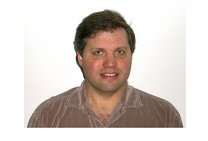Oral history interview with William W. Mattox
- 2000-Mar-13 – 2000-Mar-14
- 2000-Mar-17
William W. Mattox was born in South Bend, Indiana, two miles from the Michigan border; South Bend had the nearest hospital to his home town, Edwardsburg, Michigan. He has two brothers and one sister. His father began as a mechanic but moved into banking, beginning as a teller and eventually becoming the president of the bank and then of a network of community banks. His mother was a housewife, with a brief foray into real estate sales. Mattox thinks he always liked science (perhaps he became interested in genetics because he is indirectly related to Sir Isaac Newton); from an early age he wanted to be a doctor. He liked and did well in school. In junior high school he had very good science classes, in particular one in which they built rockets. In high school his biology teacher, Clark Mead, introduced the class to regeneration by having them cut tails off newts. Mead's enthusiasm, encouragement, and influence determined that Mattox would become a biologist rather than a chemist. By this time Mattox had decided that medicine was not for him, but that he wanted to be a scientist, though he was not sure what specifically a scientist did. Mattox matriculated at Michigan State University; he chose it over University of Michigan because he wanted to stay close to home, tuition was low, and State was more rural, he thought. In college he won an award for being the most outstanding biochemistry student of that year; the prize was delivered by Ilya Prigogine. As a junior he worked in Leonard Robbins' Drosophila lab; as a senior in Fritz Rottman's RNA processing lab; his ideas of science and of himself evolved from being around others in science, from reading, from coursework. For graduate school he chose California Institute of Technology over Yale University partly because of its science and partly because of its climate. He worked in Norman Davidson's lab on heldup-A gene, the gene that causes some Drosophila to hold one wing up; he says data collection for his work was difficult and would have been much easier if he had had polymerase chain reaction, which was not discovered until two years after his graduation. In graduate school he became interested in sex determination when he read a paper and heard a talk by Bruce Baker, who explained that temperature differences sometimes determine sex in a number of animals. Mattox was fascinated by this and accepted a postdoc in Baker's lab, at Stanford University, one of six postdocs that year hoping to learn genetics, while Baker hoped to learn molecular biology from them. While there, Mattox met his future wife; they married after his sixth year, just before they went to MD Anderson Cancer Center at the University of Texas. They now have a four-year-old daughter. At MD Anderson, Mattox has found students more directed toward clinical work, while his lab stresses the importance of basic science, how things work. He teaches experimental genetics; he sits on many students' committees; he oversees a seminar series and the equipment budget; he attempts to keep up with the explosion of scientific technology and knowledge now so much more easily available; he publishes. Most important, he tries to balance all this with his life at home with wife and daughter.
Access this interview
By request 1 PDF Transcript File and 12 Audio Recording Files
Fill out a brief form to receive immediate access to these files.
If you have any questions about transcripts, recordings, or usage permissions, contact the Center for Oral History at oralhistory@sciencehistory.org.









